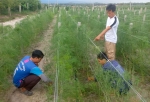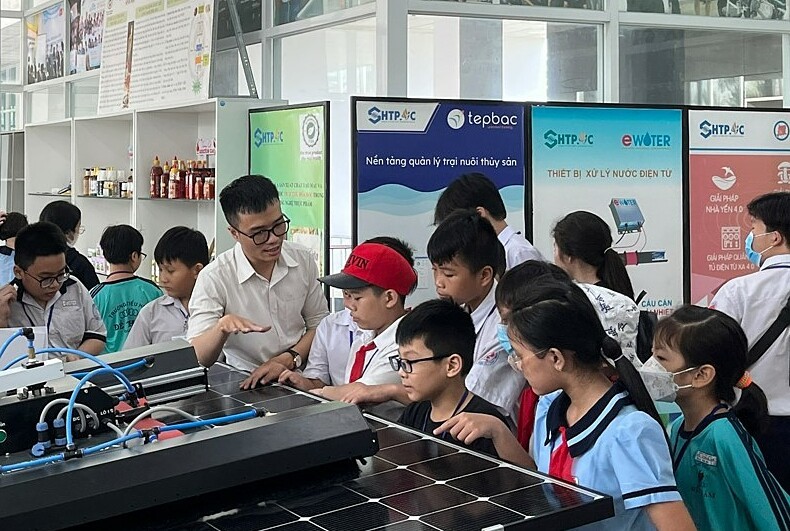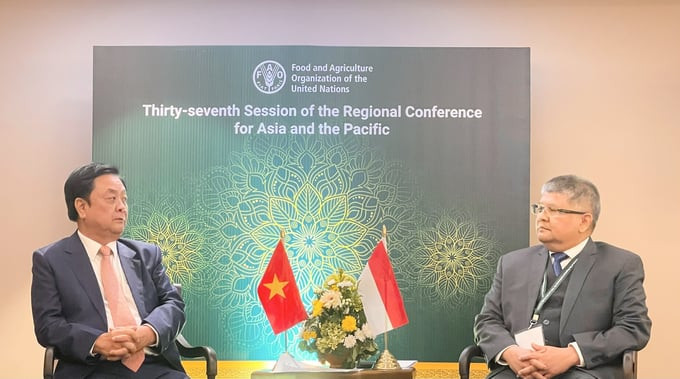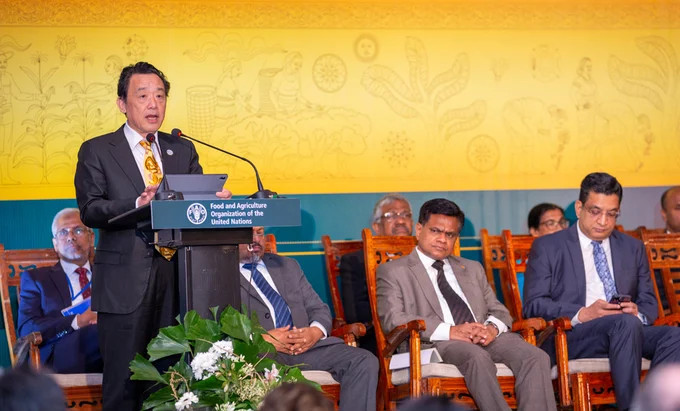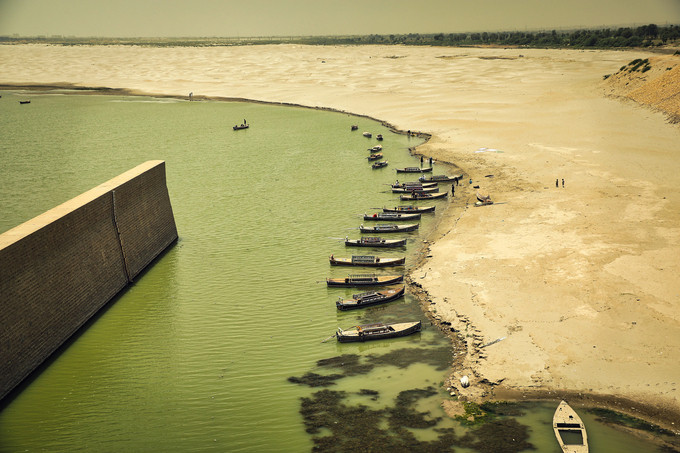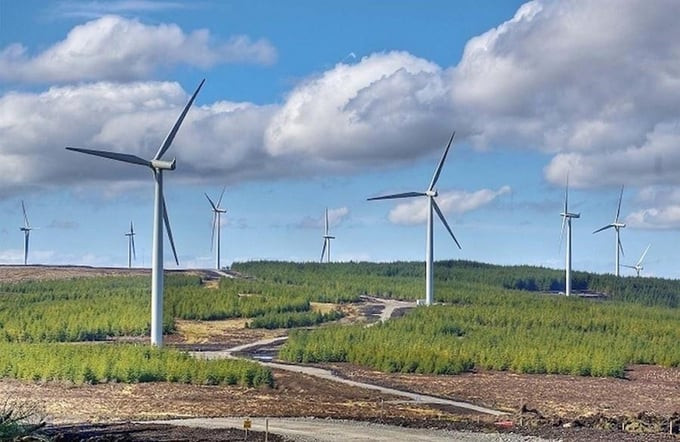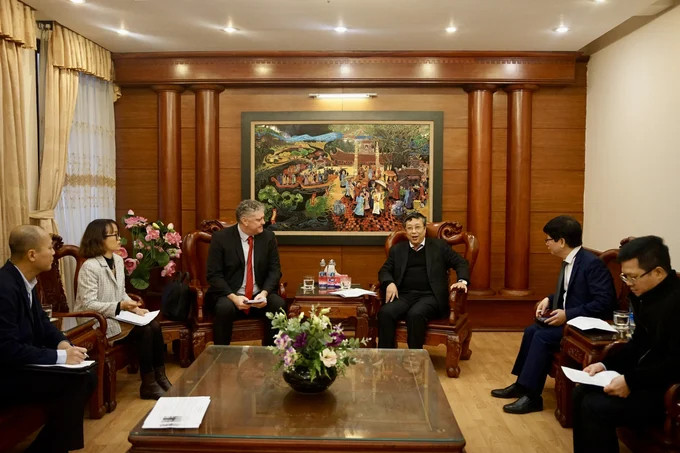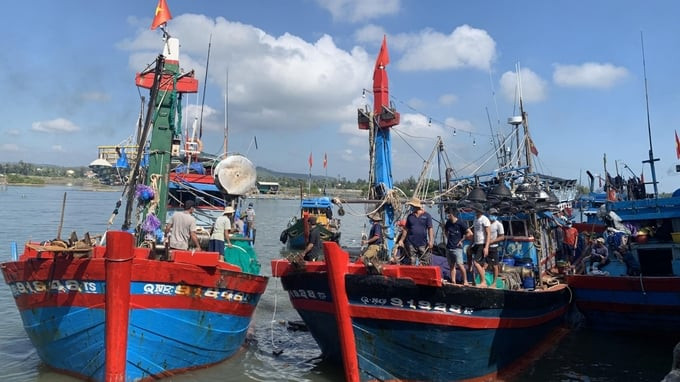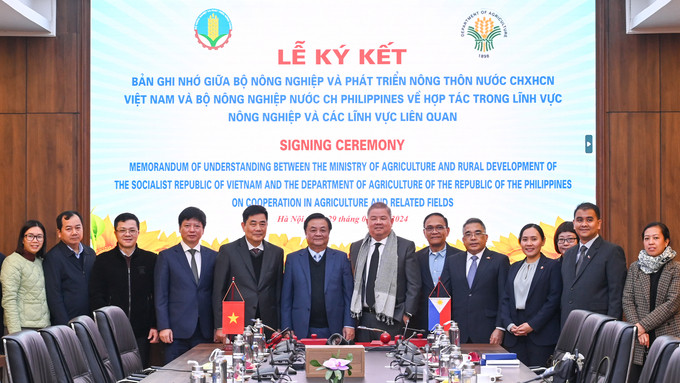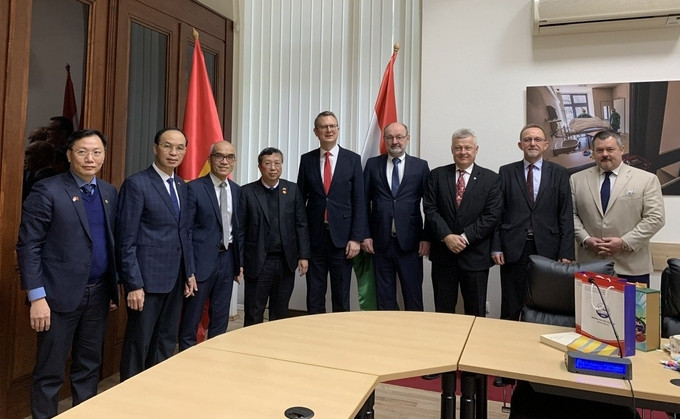(MPI) – On November 9, 2018, in Hanoi, the Central Institute for Economic Management (CIEM), the Ministry of Planning and Investment organized the Workshop "Access to Agriculture 4.0 in Vietnam: Issues" and policy recommendations”.

Vice President, CIEM Phan Duc Hieu speaking at the Workshop. Photo: MPI
Speaking at the opening of the Workshop, Deputy Director, CIEM, Ministry of Planning and Investment Phan Duc Hieu said that the industrial revolution 4.0 has been having a strong impact on sectors and fields of the economy, in That includes agriculture. In Vietnam, agricultural development has great potential, some businesses have applied digitalization to production and business from seed, cultivation, harvesting, distribution, consumption, etc. The application of industrial revolution 4.0 has decreased. reduce labor and increase labor productivity. However, this application has only been deployed by a few businesses. In order to exploit the potential and transform the way of production and approach to innovation and application of new technologies, it is necessary to study policies and businesses in promoting the approach to the 4.0 industrial revolution.
Presenting the Research Report on Access to Agriculture 4.0 in Vietnam: Issues and Policy Recommendations, Head of the Economic Institutions Department, CIEM Nguyen Thi Luyen said that the agricultural sector has an important role to play, contributing to the growth. economic growth of Vietnam. Specifically, trade surplus is increasing, in which, in 2017 it reached over 8 billion USD and created jobs accounting for over 40% of laborers working in economic sectors. Traditional inputs, outdated technology, low productivity, and low quality make it difficult to compete.
The industrial revolution 4.0 is the integration of digital, physical and biological connection systems with the breakthrough of cloud computing technology (IOT), with big data (Bigdata) and artificial intelligence (AI). ) fundamentally change the production, distribution, exchange, consumption and management and administration... The wave of innovation and application of science and technology will take place strongly in the process of international economic integration. Trade liberalization...
The basic characteristics of approaching agriculture 4.0 in Vietnam are the digitization of production activities from farm to processing, marketing, and consumption through an IoT connection system, combining operating and operational systems. A centralized, automated and intelligent business between physical technologies, biotechnology and operating technologies ensures a continuous, sustainable and efficient production and business process. Agriculture 4.0 is a closed process using technologies such as high quality seeds, smart fertilizers, herbal pesticides, precision farming, reduced seed loss and greenhouse gas emissions, automation from harvesting and harvesting. planning, storage, transportation and processing, cloud application for traceability. Approaching agriculture 4.0 is the application of achievements of industry 4.0 to agriculture to increase the efficiency of resource use, reduce labor, reduce losses due to natural disasters and epidemics, environmental safety, and save money. costs in each stage or the whole process of production - processing - consumption.
Ms. Nguyen Thi Luyen said that the industrial revolution 4.0 is an opportunity for Vietnam to grasp new technologies, narrow the gap in order to continue to restructure agriculture towards smarter, more sustainable agriculture. more responsive to climate change and international economic integration. However, it is not possible to follow the "horizontal line" style, "follow the movement", it is necessary to choose appropriate technology and suitable products associated with each region, domain and market. At the same time, prioritize agricultural development 4.0 where conditions permit, but do not exclude traditional, enterprise-centered forms of agricultural production, application and transfer of advanced technologies, forming sustainable, safe and competitive agro-food value chains...

Conference Overview. Photo: MPI
For sustainable agricultural development, it is necessary to have solutions in terms of human resources, land, infrastructure, databases, financial problems, markets and production organizations. Accordingly, it is necessary to change the mindset of farmers and businesses, to take the market as a basis to determine products, quality, etc., to increase the reliability of consumers. At the same time, consumers also need to change their minds in the application of information technology in checking product traceability.
Speaking at the Conference, Assoc. Dr. Dinh Dung Sy, Director of the Legal Department, Government Office gave four reasons to invest in agriculture, creating a breakthrough and sustainable development in agriculture as the focus of socio-economic development. in the next 10 years, specifically Vietnam has potential for agricultural development; The room for agricultural development is still very large; The industrial revolution 4.0 is an opportunity for sustainable and high-tech agricultural development; Developing agriculture will solve the problems of farmers and rural areas.
According to Mr. Dinh Dung Sy, in order to have a solution to create a breakthrough and sustainable development in agriculture, it is necessary to connect businesses, investors with farmers, expand the land tenure, and allow more land accumulation. , allowing the conversion of agricultural land use purposes in a more open and flexible way, especially the conversion of rice land to other crops or to aquaculture, cattle and poultry with economic value. higher economy. Encourage the establishment of agricultural enterprises, even without the need to establish an enterprise, but only need to have an association contract between enterprises, investors and farmers on the principle that farmers do not lose their land. Research has added other linkage models in agriculture in addition to reorganizing existing models of cooperatives and cooperative groups, so that farmers can self-link and invest in developing high-tech agriculture.
At the same time, bring science and technology into agriculture, develop preferential policies, change mechanisms for enterprises and cooperatives, etc. to apply modern science and technology to agriculture. Focus on conducting surveys, surveys and statistics to inform and forecast for businesses and farmers about products and markets, enhance trade promotion, and help people find export markets. …
For research institutes, public and non-public scientific non-business establishments serving agriculture should enjoy preferential policies, and at the same time must innovate the ordering mechanism, market-oriented research to encourage and facilitate the transfer of science and technology to agricultural enterprises and farmers. Which focuses on four issues: Technological process; Plant varieties, children; Animal feed, fertilizer; Veterinary drugs and plant protection drugs.
For enterprises, cooperatives, affiliated organizations of farmers... when applying science and technology, they can access credit capital with preferential interest rates and simple procedures, and receive a reduction in corporate income tax. agriculture and fisheries, as well as free information on products and markets.
At the workshop, the delegates discussed a number of issues for the sustainable development of the agricultural sector. The conference is also an opportunity for scientists, experts, managers, policy makers and businesses to share experiences, identify problems, then propose and recommend further policies. approaching agriculture 4.0 in Vietnam.
Mai Phuong
Ministry of Planning and Investment






